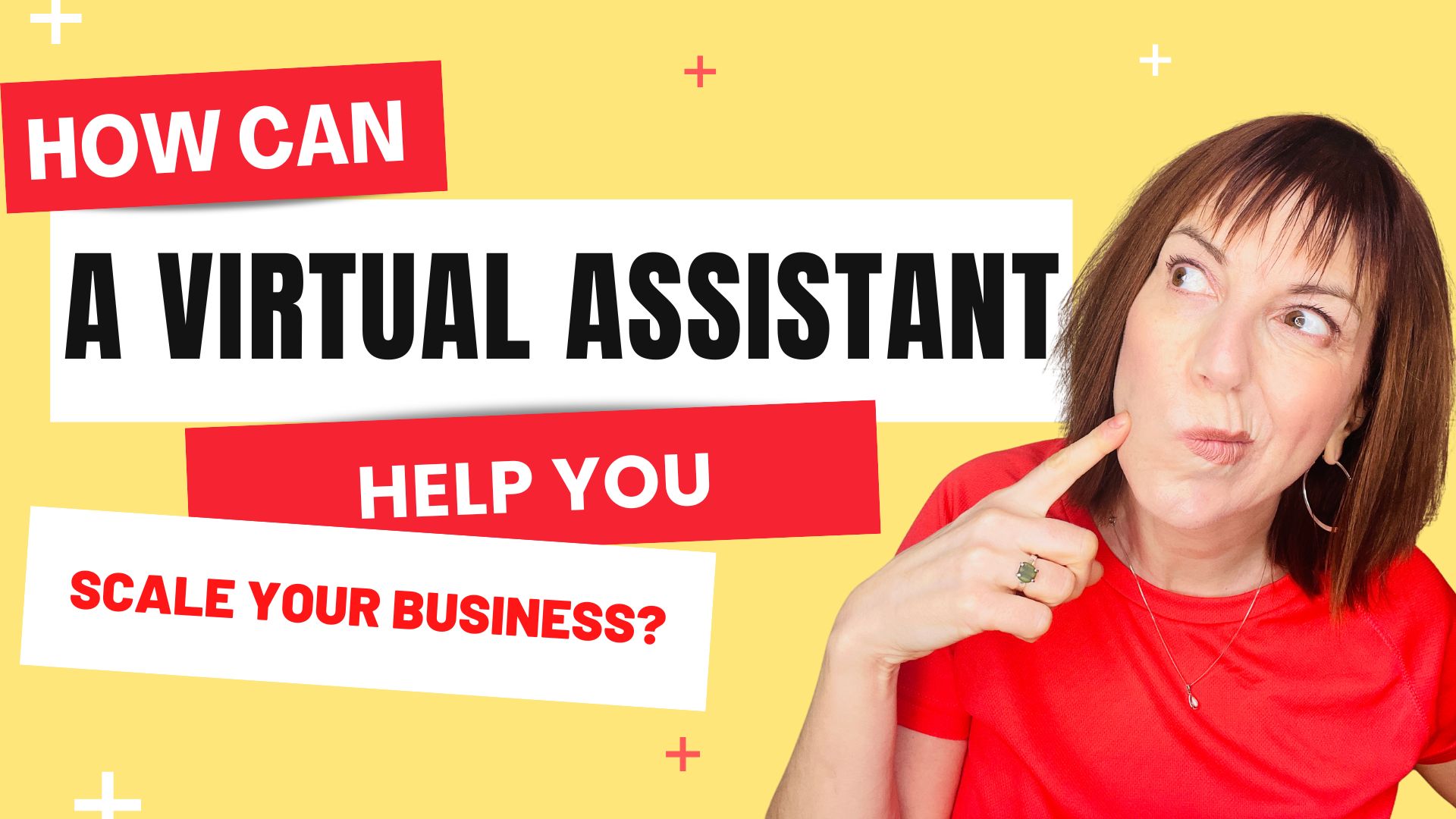Episode Summary
Nathan Hirsch tells us the most important thing any entrepreneur can learn! And it’s not what you think. Join us as we dive into an interesting conversation about how hiring can change the landscape of your business.
Learn:
– how to plug the holes in your business
– leverage your time
– set yourself up to one day sell your business
Join The Community: https://www.facebook.com/groups/WinTheHourWinTheDay/
Win The Hour, Win The Day! www.winthehourwintheday.com
Podcast: Win The Hour, Win The Day Podcast
Facebook: https://www.facebook.com/winthehourwintheday/
LinkedIn: https://www.linkedin.com/company/win-the-hour-win-the-day-podcast
You can find Nathan Hirsch at:
Website: https://www.outsourceschool.com
Facebook: https://www.facebook.com/nathan.hirsch
LinkedIn: https://www.linkedin.com/in/nathanhirsch
Instagram: https://www.instagram.com/realnatehirsch
Twitter: https://twitter.com/realnatehirsch
Check out the Outsourcing Playbook For Busy Entrepreneurs here: https://winthehourwintheday.com/outsourcing-playbook
Nathan Hirsch Transcription
[00:01:15] H Kris Ward: Hey everyone. It’s Chris ward when the hour, when the day and today we are going to dive into a really meaty conversation with Nathan Hirsch. Nathan is an entrepreneur and expert in remote hiring and eCommerce. Most recently, Nathan co-founded freeup.com in 2015 with an initial $5,000 investment. And scaled it to 12 million per year in revenue.
[00:01:38] And then it was acquired in 2019. Yay. He’s living the dream. We always have to remember, we have to sell it. We have to sell it to people or you’re just self-employed alright. Today Nathan is a cofounder of outsource school, a company working to educate entrepreneurs on how to effectively hire and scale with virtual assistance void.
[00:01:58] We all know, I love that. Right. Nathan has appeared on 300 plus. Episodes or podcasts. And so we’re lucky to have him here. He’s a social media personality and loves sharing advice on scaling remote businesses. Welcome to the show. Nathan
[00:02:14] Nathan Hirsch: [00:02:14] really appreciate you having me. I, you and I had such a great call the first time.
[00:02:17] So I’ve been looking forward to this.
[00:02:19] Kris Ward: [00:02:19] Oh, that’s good. Okay, Nathan. All right. So you’re the man. You’re awesome. You got it all going on. And what I really love to dive into for my audience is look, w the journey can be so isolating when you’re by yourself. And you’re like, Hey, my mom told me I was smart.
[00:02:35] What’s going on? Why is this not working? And I keep telling people, look, it’s just about execution. And I call it why me, you’re missing execution and you need a team for that. So we’re going to dive into how you and I are really big fans of. Great starting and growing a team, but why don’t you tell us a little bit about some of the pain points in your journey so we can relate to you and, you know, so we don’t just see you as, you know, the Superman with the Cape that you, that you got going on right now.
[00:03:01] Nathan Hirsch: [00:03:01] Yeah. So there’s really two, two stories that kind of stand out. I mean, I started selling any commerce back when I was in college when I was 20 and I started off buying and selling people’s textbooks, which I had a little bit of success, but that led me to Amazon. And when I found Amazon, that was. The game changer I got in at a great time through a lot of trial and error.
[00:03:20] I found out how to become really good at selling baby products. So if you can imagine me as a 20 year old single college guy with more hair selling millions of dollars of baby products on Amazon, that was me and. I’m making money. My parents tell me I should probably pay taxes. Right. So,
[00:03:37] Kris Ward: [00:03:37] you know what I got really good at.
[00:03:39] I got really good at buying on Amazon. So. All right. So you’re good at selling and you got good at selling baby products, but how, how does that fall into your lap? Like what made you start there?
[00:03:49] Nathan Hirsch: [00:03:49] I didn’t start there. I did a lot of trial and error. I mean, I started off with stuff. I was familiar with like, uh, computers, video games, sporting equipment, and everything failed for a different reason.
[00:03:59] If you like video games, for example, everyone sells video games for the same price. So it’s very tough to make a margin on that. And when you get, I tried more expensive products, but they were tough to ship. So I baby products for whatever reason had the good margins, they were easy to ship manufacturers.
[00:04:15] Weren’t really selling on Amazon so I could build relationships with them and. I’m sure there are a lot of reasons that I never really figured out. But so I, my parents told me I should pay taxes and I meet with an account.
[00:04:27] Kris Ward: [00:04:27] Okay. Parents. Okay. That I should, let’s be forever audited. It’s not that one should pay taxes.
[00:04:35] Okay. Good, good parental guidance. All right. Good job.
[00:04:38] Nathan Hirsch: [00:04:38] So my accountant that I meet with, he says, when are you going to hire your first person? And I kind of shrugged him off, like, why would I do that? That’s money out of my pocket. They’re going to steal my ideas, but they’re going to hurt my business.
[00:04:51] And he just laughed in my face and said, you’re going to learn this lesson early on, or you’re going to learn this lesson on your own.
[00:04:58] So I don’t listen to him. And my first busy season comes around the fourth quarter. Christmas time people are buying toys. People are buying baby products, and I get absolutely destroyed. I’m doing every single part of my business, responding to every email, changing every price I’m working 20 hours a day.
[00:05:16] My social life has gone. My grades are going down. And I work my butt off for eight weeks. And when I get to January past Christmas, I think to myself, man, he was right. I need to start hiring people right now. So that was like my wake up call as a college kid who went from man. I’m sorry, I’m having so much fun.
[00:05:37] I’m working seven hours, eight hours a day to, Oh my God. Like I cannot do this thing alone. And I start hiring people and I make a very bad mistake early on hiring. And this leads me to
[00:05:48] Kris Ward: [00:05:48] let me jump in if I can just jump in here because you’ve got so much to story. I want to pace you because we want to pick up all the nuggets you’re saying.
[00:05:55] And one of the things you said, and we hear this. All the time you and I, well, I don’t want people to steal my ideas and I don’t want them to take my money. And I mean, that just astounds me and we could do a whole show just on that, because first of all, I always say, you can have a piece of rope. You can pull somebody up to you, but not past you.
[00:06:11] Right. So I would, I don’t even know how to articulate. Maybe you could do a better job for me finally, how you can express to people that. Listen, they are not going to steal your ideas. They are, you hired them. If they had the ability to do all that, they’d be doing it. You know what I’m saying? Do you have better insight on that?
[00:06:29] Because I would always just baffles me.
[00:06:31] Nathan Hirsch: [00:06:31] Yeah. So I, I can only speak in virtual assistants, but the average virtual assistant cares so much more about providing for their family and having a stable job. And if they’re on a marketplace, like freeup, like just staying on the platform and getting other clients and having a revenue stream and making sure that you’re happy and that they, they get feedback from you than they do about stealing your business or hurting your business.
[00:06:54] Like that’s just not a top priority for them. And of course there’s exceptions to every rule. But as a business owner, I like to play the percentages and the percentages say that those people don’t want to be entrepreneurs. The reason that they’re looking for a job, the reason they’re looking to be a VA is because they want the stability.
[00:07:11] They want to go spend time with their family on weekends and not think about the business. They don’t want to take the risks that us entrepreneurs take. They don’t want to take their own money and put it into the business. Like those are things that are, do not appeal to them. Yeah,
[00:07:24] Kris Ward: [00:07:24] right. And we forget that because it’s so ingrained us that that’s sickening to most people like how, like I have my family members, I have aunt to aunt, God love them once asked me, how do you feel your day, Chris?
[00:07:35] Like they just, they think I get up every day and stretch and go, well, what will I do today? Like, they don’t understand the businesses and machine and it’s a business. And the second one will say to me, well, how do you stay motivated? Like as if I just go, okay, I got to do this today. Or the date, today’s a blank slate.
[00:07:49] So I think you’re right. I think in back we had less virtual health and you were, let’s say a photographer and now you needed a photographer’s assistant to carry equipment, even though that’s still a bit ridiculous. I can see where you think, Oh no, they’ll steal my ideas of my tricks or whatever, but you know, if you’re dealing with whatever in your business and now you need a graphic designer, so you can, you can get your message out more online.
[00:08:11] That is so far removed from somebody that can steal an idea. It’s it’s beyond silly, right? Like it’s beyond silly. Okay. So you. Like everybody else said, Oh my gosh, they’re going to steal my ideas. I’m broke. And then you went through Christmas and you just got your butt kicked and realized, this is nuts. I can’t do this again.
[00:08:28] And then you started and your first mistake was,
[00:08:32] Nathan Hirsch: [00:08:32] so I hired someone and I spent six months teaching them how to do everything. Right. Every single part of my business, customer service, sales, everything. And I, it was awesome. Once I got him trained, like my life was easier. I was less stressed out. He was running a business and I go on my first vacation in, I dunno, a year, year and a half.
[00:08:52] And on the first day of vacation, he quits on me. So six months of training down the drain. My first vacation that I really needed to just take a break ruined. And I learned a valuable lesson about diversifying and not putting all your eggs in one basket.
[00:09:09] Kris Ward: [00:09:09] Yeah, and that’s a really great point. And that’s another one that I’m always addressing with people is I’ll say, first of all, you, you don’t want all your eggs in one basket and you don’t want to be spending six months to train somebody.
[00:09:19] So what I did cause that’s where it gets this myth of, I don’t have time to train somebody, Chris. I can’t afford them. And then you think, Oh, I’m not going to reap these rewards for six months. But in fact, you know, what you want to do is just take a little off your plate a little off your plate and free up.
[00:09:32] So you could be in your zone of genius because the other thing too, I tell people this for me, when I’m doing the outsourcing playbook for busy entrepreneurs, one of the things that we talk about all the time is let’s say you have a virtual assistant, or let’s say you have somebody that helps you with your social media, the back door stuff.
[00:09:48] The mechanics of it or grabbing the messaging or anything, whatever, logistically like that, then don’t confuse that with the person who does the graphics. Right? Like, don’t take that one person that does something really well and then dilute it by getting them to sort of widen and widen their circumference because that’s where you run into hiring issues.
[00:10:07] Would you not agree?
[00:10:09] Nathan Hirsch: [00:10:09] Yeah, a hundred percent agree. I mean, man, I feel like w and this is really why I started my new company outside school, because there’s so much stuff early on when you’re hiring people that you just don’t think of. And I always wished that someone back in the day was like, Hey, do this, don’t do this.
[00:10:24] You’re going to regret doing that. And, and it’s all the it stuff that, that comes over time. And I wouldn’t say that hiring is rocket science, but there are really good best practices that people should be doing. And it hiring is one of those things that. If you were making bad hires and you’re making steaks, it makes you want to say, Oh, I’m never going to hire someone again.
[00:10:43] I’m going to do it all myself. But if you’re making that good hire and you start having good systems and your processes, it becomes addicting. It becomes fun. It makes your business
[00:10:54] Kris Ward: [00:10:54] outsource next.
[00:10:55] Nathan Hirsch: [00:10:55] Exactly. The experiment did comes in because you can try out different things like lead generation or different people doing social media posts and some stuff works and you put more time into and other stuff doesn’t, and maybe you pull back and revisit it later with different stuff, but that’s the fun part about being an entrepreneur?
[00:11:12] Kris Ward: [00:11:12] Yeah, you’re still right. And because also when people say to me, Oh, well, what if you do what? You know, what do you do if you can’t afford it? Say, well, if you can’t afford to outsource, you really need to outsource. But on top of that, I think for many people, what happens is they’re going back to the old school mentality of when they were an employee.
[00:11:27] So they think of hiring a team like when they were hired, like, Oh my gosh, you know, as much as I thought I wasn’t getting paid enough, I can’t afford to pay that. And I can’t afford all that goes along with hiring somebody. And we’re just in a magical time where the resources are global they’re economically.
[00:11:43] So. Feasible and, and on like anything before, as far as, you know, being able to get someone and no commitment. I mean, there’s just so, I mean, it’s just not a better time to be in business as far as resources go. So I think that’s usually important and people get stuck on that. They start thinking like, ah, this big, heavy, old school hiring.
[00:12:02] So I think it’s important conversation to have over and over again. What are some of the other lessons you learned?
[00:12:09] Nathan Hirsch: [00:12:09] So man onboarding is such a big part of hiring a virtual assistant. I like to break down, hiring into interviewing onboarding training, and managing, and most entrepreneurs know you need to interview someone.
[00:12:22] Most entrepreneurs know you need to train them and manage them. But. The onboarding gets skipped. And what I like to teach people to do is what I call my sicc method, which is SICC. It stands for schedule issues, communication, and culture. So you’ve interviewed someone you’d want to hire them before you hire them.
[00:12:39] Have a 20 to 40 minute conversation. This isn’t an eight hour conversation, 20 to 40 minutes to really protect your investment. And you’re going to go over. What other clients they have, what’s their schedule? What schedule do you need them to work? What are their claimants? Do they have, what total hours are they working?
[00:12:54] You’re going to go through common issues that people have with VA’s, which is personal issues, computer power, internet, weather, and for every issue you’re going to go through. How often do you have the issue? What is your backup plan when you have these issues? Because we don’t work with VAs that are. One issue away from not being able to work for a month, which happens then how you’re going to communicate each issue when it happens.
[00:13:16] You can’t just disappear for 48 hours. How are you going to get ahold of me or someone on the team and let them know, then we go over communication. What channels we use? We use Slack
[00:13:26] Kris Ward: [00:13:26] and tell you a funny story to do that and let it feel. When I first, one of my first virtual assistants. And so I had somebody in house had worked with me for years and I had this first time I hired somebody from the Philippines and she was able to communicate with me through her phone.
[00:13:38] Cause she said, Oh my gosh, my village has been wiped out with a typhoon. I’m just messaging you from my phone. I will be at a computer in three hours. And I was like, okay, you could take the day off. You had to tie food, we’ll see tomorrow. So she was able to communicate and tell me what’s going on. And she even sent me a link of the news of what happened in her country.
[00:13:55] Then my life. Right in person who works in the office shows up 20 minutes late. He’s like, Oh, I’m so sorry. Traffic was bad. I’m like, listen. I mean, I didn’t care. That was funny. But I’m like, look at this. She showed up in time and she had a typhoon and you’re telling me the drive through at Tim Horton’s was bad.
[00:14:12] So we, we, you know, I’m okay with it, but right now you’re not looking so good. Right. So my apologies. I had to add that story continue
[00:14:20] Nathan Hirsch: [00:14:20] though. That’s a fantastic story. And it’s one of the things that makes like a really good VA. I mean, to be honest, like we live in the U S a lot of us can’t or you’re in Canada, but a lot of us can’t fathom what it’s like to live in a third world country.
[00:14:33] They go through a lot of stuff that we don’t necessarily go through, but the best VA still figure out how to communicate at a very high level. And that’s something that. Uh, people that are hiring games the first time don’t realize, and don’t stress importance on it. And we like to spend extra time stressing that upfront.
[00:14:49] And so when we go through the first C, which is communication, we go through how they communicate, what channels we use, what our expectations are. And then we go through culture, which is the next, see that. We don’t put up with people. Let
[00:15:01] Kris Ward: [00:15:01] me pause you again. If I can just for communication, because as much as we talk and we make it seem like it’s, you know, they’re so far away for somebody who hasn’t used someone in the Philippines, there’s also geographically, Canada and us are very different.
[00:15:12] Like we have Christmas season, you guys have areas of the country that have tornado season, hurricane season, you know, you have earthquakes. So even just not having somebody that shares the same geography with you, it’s like, Oh, what do you like? You know that can’t, that’s not a problem I’ve ever had.
[00:15:28] Earthquakes. Right. So just understanding even if the geography is not that far away, just that we have different experiences.
[00:15:35] Nathan Hirsch: [00:15:35] Right. I completely agree. Um, so yeah, communication, we don’t put up with drama. We don’t put up with people that are not a communication fit. And so once we’ve gone through schedule issues, communication culture, we give the VA a chance to ask questions, and then we give them a chance to back out because we’d much rather they say, Hey, Nate, your expectations are too high.
[00:15:54] I don’t agree with this. Whatever it is. Then for me to find that out two months down the line, when I’ve already invested time, energy, and money into that. So if you take anything away from this podcast, don’t forget to onboard your virtual assistant and it you’ll be so thankful that you did it. And we give you our exact onboarding method at, at outsource school.
[00:16:12] Kris Ward: [00:16:12] Yeah, no, that’s awesome. And that is so hugely important because people will say to me sometimes, Oh, I heard you. And then they come back later and they’ll say, well, I tried it, Chris and I hired somebody. It didn’t work out. And I’m like, well, that’s like my accountant saying, you know, Chris, you needed a new tax strategy and they come back next year and go, well, it didn’t work out well.
[00:16:29] What do you know about that? You have new experience and, and so. This false sense is entrepreneur everything you think you need to learn, you think, Oh, I’ll just pull up my bootstraps and do it myself. And because you’ve been hired, or maybe you hired somebody when you were doing your part time job, is it your first job as a teenager, whatever you think you have this ability to hire.
[00:16:49] And it’s a whole new skill set. And I think that’s one of the damaging things of entrepreneurs that you always think I can muscle through it, but hiring training, maintaining. That is a definite strategy. It’s a very easy skill set to acquire, but you need to know. I often compare it to like baking grandma’s chocolate chip cookies, you know, uh, if you put the cookie chocolate chips in, after you take the cookies out of the oven, okay.
[00:17:14] There’s still sugar. You’ll stumble through it. You’ll get it down, but it’s not the same chocolate chip cookies. Like that simple strategy. That you’re talking about hiring and onboarding. It really makes a difference in the outcome.
[00:17:25] Nathan Hirsch: [00:17:25] Yeah. I think hiring is the number one skill set of being an entrepreneur because there’s so many things you have to learn as entrepreneurs or people think they have to learn from, from the tax side, the marketing side, social media, whatever.
[00:17:38] But if you learn hiring, it kind of solves a lot of those problems because you can put people through those processes and plug the holes when you need them. Instead of having to try to learn and master every little thing, which just becomes impossible at some point, Yeah. And
[00:17:51] Kris Ward: [00:17:51] it gives you freedom. Cause I remember back in the day, many years ago, way in the beginning where you would get it, I would get a new client or something and I’d be sitting there and they would want something that we had done before.
[00:18:00] And I could feel my Oregon sweating on the inside thinking, Oh, I hope we can learn this quickly. And I hope the other clients, you know, we like knowing that we’re going to take a hit, cause we’re going to neglect them because we have to pay more attention on this new client and learn this new thing where now I can just hire on a dime, like, okay, here’s what I need to know.
[00:18:16] And the other big thing, and you can address this as well as. People think you have to know what exactly you need to hire, right? Like, Oh, well, I don’t know how to do that. How do I hire someone that does that, but it’s literally show and tell people, like, show and tell, I want a video that kind of looks like this.
[00:18:31] Here’s our video. Can you edit it? It’s a 32nd screen capture. Boom. I mean, I think that’s a big misconception as well. When you agree.
[00:18:39] Nathan Hirsch: [00:18:39] Yeah. Yeah. I would agree as well. And I’m a big proponent of SOP standard operating procedures, which is a big part of hiring, but it’s just a big part of your business in general.
[00:18:48] I mean, I just went through a sale where someone bought my last company free up and we’re going through due diligence and asking, how does customer service work? How does billing work? And if I had said, Oh, don’t worry. It’s in my head.
[00:19:00] Nathan Hirsch: Like you’re not buying my business. It’s Hey, here’s five minutes later.
[00:19:04] It’s Hey, here’s my 50 page SOP of who does what, when and every single situation that’s, what’s impressed them. That’s where they wanted to take it and make better and scale over time. So everything, it picks something up, turn into a system. Hire someone delegate it, pick something else up. And if you take that mentality as a business owner, that’s when you start really scaling and growing and really making your business sellable from the beginning.
[00:19:29] And even if you don’t want to sell your business, you still want to make it sellable from the beginning because your mind might change down the line. And even if you want a lifestyle business, there’s no lifestyle business without systems processes and people.
[00:19:41] Kris Ward: [00:19:41] No. And I always say too is like having a bunch of file drawers open at all times.
[00:19:45] Like even to do this podcast where, you know, before I hop on, I have this little checklist and there’s little simple things, but even though, um, you know what, I’m going to batch my work today. So after this interview, I have another interview, but what will happen is before that interview, I will still check, like my Skype is off.
[00:20:00] My phone is on you, right? You know, I’ve got enough water and I got these things because what happens is you might jump on the next call and go, Oh, I already did that. It’s in my head. And then you’re like, Oh, I forgot. I turned my phone off because that person was calling for that important thing. And so then you’re all right.
[00:20:14] That’s the exception. So following a simple five step six step thing before you hop on every call, it just go. Yup. Yup. Yup. It’s all good. Right. So people hear the word process and they think it’s this big flight manual and they don’t have time to do that. So I think that’s also really important that you’re addressing that.
[00:20:31] Nathan Hirsch: [00:20:31] Yeah, and I tend to, and this is more of a Nate personal thing, but I tend to be someone who doesn’t like to just sit down and write eight pages of or eight hours of SOP is. But what I’ll do is I’ll, I’ll chip away at it little by little. So I’ll do a little brain dump and the next day I’ll do a little bit more brain dump.
[00:20:45] And by Friday, the SOP is done or pretty close to done. And then you can even give your VA ownership of the SOP and have them updated and keep it updated over time and add, add videos, create screenshots, whatever it is.
[00:20:57] Kris Ward: [00:20:57] Yeah. You’re so right. Or sometimes what I’ll do is all of a sudden it’s like, okay, well I’m now doing this, so I’ll just make notes that second or third time I do it.
[00:21:05] Cause I figured it out. So I’m just making notes as I do it, like, Oh yeah, I do this step and do that step. And then it’s done. It’s like, it’s really just, you know, it’s really not a big task. So tell me some other myths or big mistakes missteps that people make when they think of that outsourcing world.
[00:21:21] Nathan Hirsch: [00:21:21] Yeah. So we talked about onboarding, missing onboarding is one of the big ones. Whenever I would talk to people and they had issues with VA’s the first two questions I would always ask is when did, or how did you onboard them? And when’s the last time you met with them? And usually I haven’t met with their VA’s as often as they should.
[00:21:38] We have a. Well, we call our hands on meeting every Monday where we meet with everyone or we get on the same page. Then we have a team meeting for each team once a week. So our billing team has a meeting. Our customer service team has a meeting, and then we do a one-on-one performance meeting once a quarter with every VA.
[00:21:55] And we give you. Yeah, all our exact templates for these meetings at outdoor school. But you have to have these meetings. You have to really get on the same page. You have people to give feedback, you’d be able to get feedback. You have to be able to update people on what’s going on in the business or else they’re going to lose interest if they’re just using their one task over and over again. And they don’t know how that impacts the big picture.
And I I’m a big proponent of short meetings. Our meetings are usually tend to. 30 minutes. but these meetings are so key and they have to be consistent. Yeah. If you miss a meeting one week, that’s fine. You better make sure you have it that next week, because the second you go, 30 days without meeting with your team, talking to your assistant, things go wrong.
And, but by the time we sold free up, we had a 35 person team. We had team leaders, we had 14 leaders and there were some meetings where they just ran the meetings. I didn’t have to be there, but the meetings still went and I could just have a team leader meeting each week and then they would go and meet with their specific team.
[00:22:46] So you don’t have to meet with all your VA’s forever, but you have to set that up from the beginning and it is an important part. And it’s a mistake that I see a lot of entrepreneurs make. Yeah,
[00:22:55] Kris Ward: [00:22:55] I think you’re so right. And I’m a big proponent of, I read a book once and I think they were so right. And I I’m really bad at this.
[00:23:01] I never remember which book it is re read many, but, and they’re saying, you know, if you can’t stand in the meeting, it’s too long of a meeting. Right? So one of my meetings I like in short too, and I’ve got my standing guests, which I love and adore and other state and other show, but it’s all about the standing meeting.
[00:23:16] So I agree with you so much. And also at the end of the day, look. What I learned in the early years when there was hiccups in my journey is at the end of the day, it all comes back to you. So, you know, whether you think you can’t be saying it’s the economy, it’s kids these days, it’s nobody wants to work hard.
[00:23:31] It’s whatever, if there is turbulence in the. Journey. It comes back to you, your communication, your setup, your strategy, your lack of information, or, you know, I’ve seen situations where entrepreneurs get all hyped up about something that they, something happened over the weekend or they signed up for a course or they’re going to start a podcast and all of a sudden.
[00:23:50] They’re deep into it by Monday. Cause this is their new next thing. And the team doesn’t have any idea like, Oh wait, sorry. I’m sorry. I’ve now been working on this for three days. I forgot you. Weren’t with me. So communication can be a killer for sure. So this has been awesome, Nate, so glad I feel like we’re, we’re all buddies.
[00:24:08] Now I can call you Nate. So tell us where people can find you and your charm and wisdom online.
[00:24:15] Nathan Hirsch: [00:24:15] Yeah. So I’m very easy to contact online. Nathan Hirsch on Facebook or LinkedIn, real Nate, Hirsch, Instagram or Twitter. I go to outsource school. You can sign up for a free trial. We provide a ton of information for our members and we’re building this, uh, SOP building software that we’re excited about.
[00:24:30] So feel free to connect with me, check out outside of school and I appreciate you having me on.
[00:24:35] Kris Ward: [00:24:35] Awesome. Thank you so much. All right, thanks so much, everyone. We’ll see you on the next episode.











